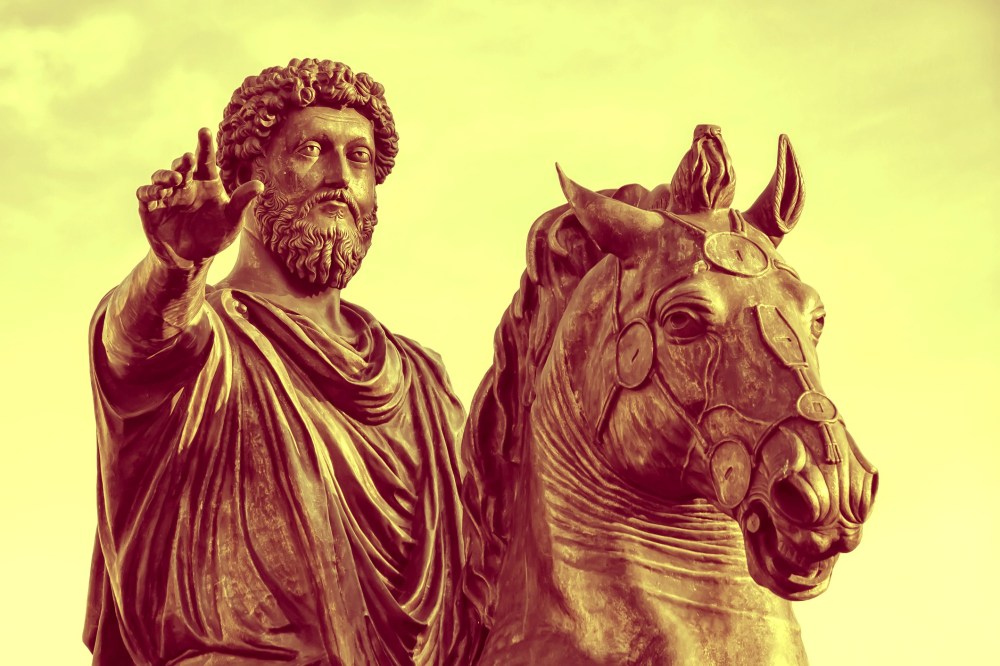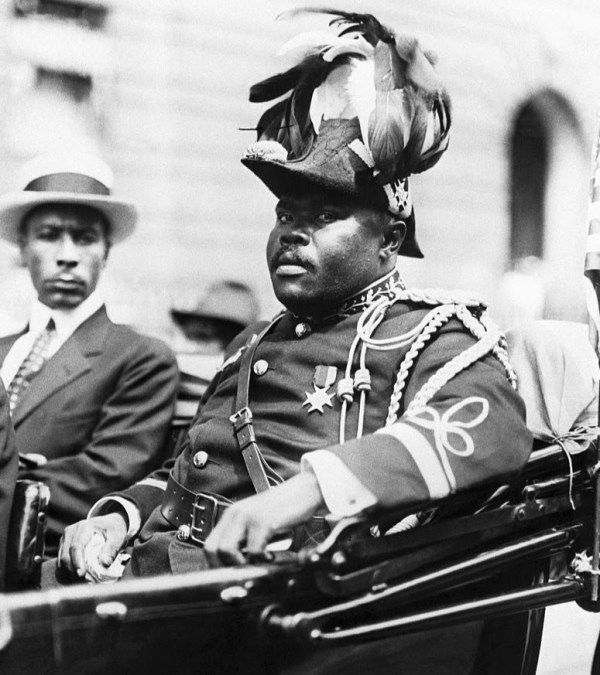Hey,
Some people are excited about the release of the newest PlayStation or the latest Air Jordans. Me, I get kind of giddy when they roll out some new ideological faction. Of course, much like a new video game console or line of sneakers, what’s new is usually pretty superficial and cosmetic. Still, it gives us something to talk about.
Even more exciting: when they discover an old ideological faction hiding in plain sight. It’s a little like when they find some new species of goat or jungle cat. It’s been here all this time, but nobody snapped a picture until now. Or maybe it’s like finding out that a network of Druids or Pythagoreans are a powerful and influential constituency and you never noticed.
That’s a bit how I felt reading this essay in the New York Times explaining Donald Trump’s foreign policy. He’s not an isolationist or non-interventionist, and he’s obviously not a neoconservative or internationalist. He’s a … sovereignist, writes historian Jennifer Mittelstadt.
Sovereignist? What’s that? I mean, my spellchecker doesn’t even recognize it. Well, the gist is that sovereignists believe that the guiding principle of American foreign policy is we can do whatever we want—or whatever we can get away with. To that end, alliances are problematic because they constrain our freedom of action. But what should really be avoided are international institutions, multilateral compacts, treaties, bowling leagues, etc.
In Mittelstadt’s telling, the sovereignist movement was born in reaction to the effort to enlist America in the League of Nations. The “irreconcilables,” were those senators who opposed joining the league no matter what. Mittelstadt doesn’t get into the weeds, but the irreconcilables' biggest peeve (other than just disliking Woodrow Wilson) was with Article X of the League Covenant, which would require members of the league to defend each other if attacked. For the sovereignists, being on the hook to get into someone else’s fight was an unacceptable violation of, well, American sovereignty.
Since then, the sovereigntist movement has been the driving force behind opposition to U.S. membership in the U.N., various multilateral agreements—and even NATO.
Now, I have quibbles with Mittelstadt’s narrative and analysis. First, calling it a “movement” makes it sound a bit more organized and coherent than it is. It’s more like a longstanding sentiment or argument, than a cause with meetings and the like. Second, it’s a little problematic to say the president is part of a movement that he’s almost surely never heard of. But only a little. I mean, just because he’s never declared “I’m a narcissist” doesn’t mean he isn’t one.
Last, Mittelstadt suggests that this is a decidedly conservative movement. I get why she does this — sovereigntism is and has been a more robust force on the right for the last century. Robert Taft was definitely a sovereigntist. So was Jesse Helms. Reagan definitely had a sovereigntist streak—hence his opposition to giving away the Panama Canal. Anti-U.N. sentiment has always been a significant force on the right. But if we’re going to say this thing was born in 1919 with the “Irreconcilables,” it’s worth pointing out that some of them were Democrats and quite a few of the Republicans were progressives, like Hiram Johnson, William Borah, and Robert La Follette.
Also, I could make the argument that, in his first term at least, FDR was the most consequential American sovereigntist of the 20th century. His decision to screw Europe, and much of the world, by torpedoing the London Economic Conference in 1933 as well as moving off the gold standard was grounded entirely in sovereigntist arguments (though most historians use the label “nationalist”).
I could go on quibbling, but the fact is, I think Mittelstadt’s focus on sovereigntism is actually very smart and helpful. It’s definitely a better label than “isolationist.” I’ve written tons on how people misuse and abuse the term isolationism. The claim that isolationism is definitionally right-wing or conservative is ahistorical claptrap. Many so-called libertarian isolationists on national security are in fact globalists on economics. Some opposition to joining the League of Nations or the U.N. was isolationist, but more often it was sovereigntist.
Which is why sovereigntist is a better word: It more accurately and fairly captures the views of people who get called isolationist. It also better describes the views of people who often get called “neoconservatives.” The best illustration of this is John Bolton, arguably the most consistent and effective proponent of sovereigntism alive today. He’s been swinging his cowbell in favor of a more assertive, but also more independent, America for decades. Which is ironic, given how so many of today’s putative sovereigntists hate him and mislabel him a neocon (as you know, I think there’s nothing wrong with being a neocon, but when Bolton’s critics, on the left and right, use the term, it’s almost always a pejorative – and inaccurate).
Indeed, during the Iraq war, every conservative “hawk” was labeled a neocon, when some of the most forceful and articulate hawks utterly rejected things like nation building and democracy promotion. In 2006, Rich Lowry wrote an essay titled “The ‘To Hell With Them’ Hawks” whom he described as “conservatives who are comfortable using force abroad, but have little patience for a deep entanglement with the Muslim world, which they consider unredeemable, or at least not worth the strenuous effort of trying to redeem.” This was often shorthanded, somewhat problematically at times, to “the rubble doesn’t make trouble” school.
It’s certainly the case that the sovereigntist label fits Trump better. It helps explain why Trump is much more keen on screwing with allies and withdrawing from multilateral entanglements far better than the word “isolationist.” I mean, you can’t really call the dude looking to annex Greenland, reclaim the Panama Canal, and absorb Canada a doctrinaire isolationist. And his absolutely wild idea of seizing Gaza, ethnically cleansing it of Palestinians, and creating a Middle East Riviera—“Mar-a-Gaza”—is not exactly the sort of “come home America” foreign policy J.D. Vance has been teasing. I mean, the phrase “Pax Trumpiana” is proliferating on Twitter, which is strange given that much of the MAGA movement has been crapping over the idea of America as the “world’s policeman” for a long time.
So, you might ask, what’s wrong with sovereigntism? And my short answer is nothing, in moderation. As you probably recall, I’m a the-poison-is-determined-by-the-dose guy. So I am entirely comfortable saying that I subscribe to, or have serious sympathy for, many sovereigntist arguments. America shouldn’t join any club or contract that is not in America’s interest. But in most cases, that’s not a binary, yes/no calculation. It’s a cost-benefit analysis. Do we gain more than we lose by joining this or that organization or compact? With NATO, for example, the benefits far outweigh the costs, in my opinion. That doesn’t mean it’s unreasonable to want to increase the benefits or decrease the costs at any specific juncture.
This introduces another concept that we need to consider: hegemonism. One of the reasons FDR’s decision to bail on an agreement to stabilize global currencies in 1933 has been criticized is that he rejected the expectation that America—the richest nation at the time (and now)—would and should replace the U.K. as the global economic hegemon. We can debate whether that was a wise decision, and there are good arguments on both sides, but it’s worth noting that FDR, and America generally, ultimately decided that it was in America’s interests to become the global economic hegemon after World War II. It turns out that our go-it-alone approach in the mid-1930s was one of the reasons the Nazis came to power, and the world was set on fire. America was right to recognize that it was better to lead the world than be dragged into yet another world war.
The decision to lead the world, with like-minded allies, was good for the world and us. It’s why the dollar is the world’s reserve currency, which is good for America. We set the rules for global trade. We lead the free world.
The hardcore sovereignists never made peace with that. But most sovereignists were also internationalists, too. There was a vast consensus, among Goldwaterites, Reaganites, Buckleyites, social conservatives, neoconservatives, Scoop Jackson Democrats, etc. believed—rightly —that being the global hegemon benefitted us more than it cost us. Even Pat Buchanan was all in for American leadership until the end of the cold war. NATO amplified our power in the world, while only minimally constraining our freedom of action. Our alliances didn’t prevent us from doing what we wanted—right and wrong—in our backyard. And they helped contain the Soviet Union.
I am in favor of a healthy balance between sovereigntism and alliance-supported hegemonism, because it’s good for America. The hardcore sovereigntists don’t like the second part, because it requires behaving like an adult and being a reliable friend. Trump thinks that makes us suckers. I think it makes us grown-ups.







Please note that we at The Dispatch hold ourselves, our work, and our commenters to a higher standard than other places on the internet. We welcome comments that foster genuine debate or discussion—including comments critical of us or our work—but responses that include ad hominem attacks on fellow Dispatch members or are intended to stoke fear and anger may be moderated.
With your membership, you only have the ability to comment on The Morning Dispatch articles. Consider upgrading to join the conversation everywhere.